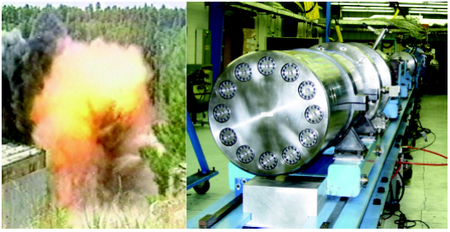SCCM Topical Group

Topical Group Description

SCCM needs a minimum number of members to continue its existence or the Shock Conference goes away.
The APS Topical Group on Shock Compression of Condensed Matter (SCCM) was founded in 1984 to foster the development and exchange of information in the discipline of shock compression science. The Group organizes the biennial Topical Conference and publishes a Newsletter, providing an opportunity to disseminate information on shock compression research, including theoretical and computational studies, experimental methods and developments, and numerical methods that are necessary to facilitate an understanding of the physics of shock compression of condensed matter.
How to Join the Topical Group- If you're an APS member, you can add SCCM: http://www.aps.org/membership /units/join-unit.cfm
- Or, join SCCM when you join APS using:https://www.aps.org/memb-sec/join/startpage.cfm
- Be sure to add SCCM as a unit

SCCM needs a minimum number of members to continue its existence or the Shock Conference goes away.
- Assist in deciding who may be nominated as APS Fellows, vote on award winners, etc...
- Have input into the biennial Shock Compression of Condensed Matter (SCCM) Conference.
- Be considered as a technical program committee member for organization of the Conference.
- Connect with other professionals that can network you with post-doc or job opportunities in the field.
- The Shock Conference has grown from 200 attendees in 1981 to well over 500 in 2015.
- The proceedings are now searchable on SciSearch and other services, and the articles are available in pdf format.

SCCM Executive Committee (2017)
OFFICERS –
- Chair: Damian Swift (Lawrence Livermore National Lab)
- Chair-Elect: Brian Jensen (Los Alamos National Lab)
- Vice-Chair: Tim Germann (Los Alamos National Lab)
- Past-Chair: Dan Dolan (Sandia National Lab)
- Secretary/Treasurer: Mark Elert (US Naval Academy)
- Cynthia Bolme (Los Alamos National Lab)
- Jennifer Gottfried (Army Research Lab)
- Rick Kraus (Lawrence Livermore National Lab)
- Seth Root (Sandia National Labs)


